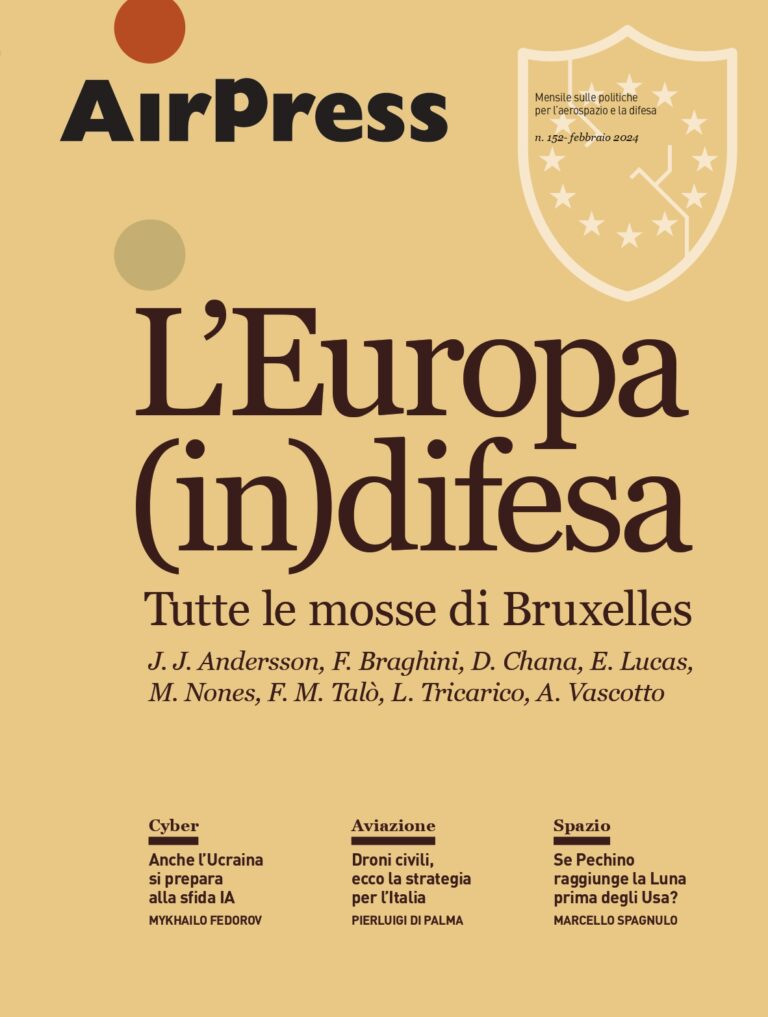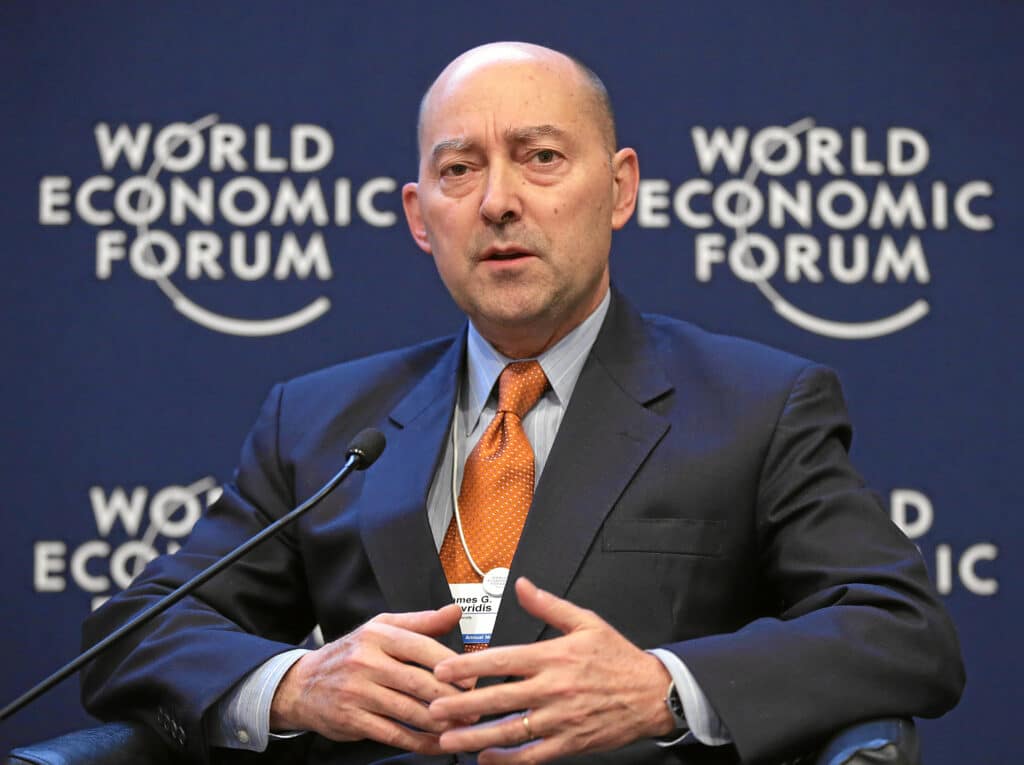The next World War is closer than you think. In an exclusive interview to Formiche.net the 4-star admiral zeroed in on global issues, from China to Russia, from the Mediterranean to NATO
The next World War could break out within fifteen years, and it would be fought between the US and China. This grim prediction is fleshed out by 4-star Admiral James Stavridis, formerly NATO Supreme Allied Commander in Europe and head of the US European Command under President Barack Obama, in the new book he published with Elliot Ackermans, titled 2034, a novel of the World War.
In an exclusive interview with Formiche.net, Mr Stavridis zeroed in on the global threats at hand. The US and China are at odds over several issues – Taiwan, the South China Sea, cyber and tariff warfare, human rights – and their distance is not set to decrease, he said; “both will continue to enhance their military capabilities, and we could reach a tipping point.”
No real winner ever emerges from such conflicts, he continued, but this one could entail nuclear warheads – which is why it must be avoided at all costs. But the US has a key advantage over China: its alliances and NATO.
“China has more battleships than the US. But a united NATO together with Japan and Australia (which are both members of the Quad, editor’s note) has many more – and it has a bigger firepower,” he remarked.
Most importantly, “we’re all democracies. And this is another advantage: there are those who think that an authoritarian government is more efficient, but they are all subject to serious internal turmoil in the long run,” argued Mr Stavridis. And although authoritarian China and Russia are warming up to each other, neither can boast a real alliance network.
This goes some way to explain the increased attention that Western nations are placing on the Indo-Pacific region. Having Quad ships in the South China Sea is crucial, argued the admiral, because if China had its way, “it would be the end of free navigation in all of the world’s oceans.”
Mr Stavridis told Formiche.net that NATO Secretary General Jens Stoltenberg personally assured him that China will rise higher in NATO’s agenda.
Naturally, that’s not the only front. The Mediterranean remains an intricate hotspot of interlacing conflicts, what with contested energy reserves in the East, regional tensions, and Russia’s patrolling of the Black Sea to assert its power over Crimea, as well as its standing at the side of Syrian dictator Bashar al Assad.
Russia is a major problem, as Mr Stavridis put it, because there’s “nothing more dangerous than a weak nation that wants to look strong.” Russia is a declining power, he argued, because of the ageing demographics, falling life expectancy, the economy depending on oil and gas only and the lack of true allies. Thus, “the Russian government increases its foreign assertiveness to hide [this decline], so as to present itself as a great power internally.”
The US is perfectly aware of European preoccupations regarding regional instability and immigration in the Mediterranean. That’s why US warships patrol the area, added Mr Stavridis, who remarked that the command of these operations “must remain in Europe’s hands.”
“Italy can and must have a leadership and coordination role in these mission,” he added; “as an American and a former Navy official, I can testify that Italian ships are professional, capable, and deployable in any area of the world. Especially in a mission with other European allies.”
Rome should also reach out to Vladimir Putin and convince him not to lean onto China, but that dialogue should not ignore the threats presented by Russia, which include the invasions of Crimea and Georgia, interfering with democracies and the poisoning of opposition leader Alexei Navalny, in front of which “one cannot remain silent.”
NATO-wise, the admiral suggested a deeper cooperation between allies in four steps: increasing joint work and sharing data, investing more public funding in cybersecurity, stepping up university education (especially in STEM subjects) and building a new coordination structure that includes NATO, the EU and allied countries such as Japan.
Touching upon Italy’s attempt to relaunch its strained relationship with Turkey, Mr Stavridis guaranteed that “Turkey has always responded to our call” whenever necessary. Ankara’s attempts to move away from NATO’s perimeter, however, remains a problem, exemplified by its purchasing of Russian-made S400 missiles, incompatible with American-built F35s. Time for Turkish President Recep Tayyip Erdoğan to “dispel any ambiguity,” he concluded.







